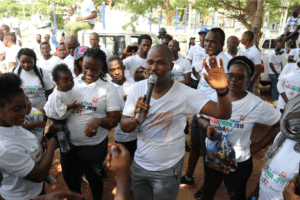January 29, 2012; Source: Boston Herald | When the New England Patriots take the field for Super Bowl XLVI, so will Myra Kraft—symbolically, at least. The wife of Patriots owner Robert Kraft, Myra Kraft died in July of 2011 after battling cancer. The Patriots have dedicated their season to the late philanthropist, wearing a patch with her initials, MHK, on their uniforms throughout the current football season.
This recent Boston Herald column notes that Myra Kraft went beyond the kind of from-a-distance philanthropy that is often typical of wealthy donors, stating that “in addition to writing checks, [she] rolled up her sleeves and pitched in.”
It’s true. Aside from raising money for numerous educational initiatives through the Kraft Foundation, Myra Kraft also served as the first female chair of the Boys & Girls Club of Boston and was the national chair for the United Jewish Communities General Assembly. She served on the boards of directors at the Boston Foundation, the United Way of Massachusetts Bay, Brandeis University, the American Jewish Joint Distribution Committee and the American Repertory Theatre.
Sign up for our free newsletters
Subscribe to NPQ's newsletters to have our top stories delivered directly to your inbox.
By signing up, you agree to our privacy policy and terms of use, and to receive messages from NPQ and our partners.
“She was down in the trenches, doing real work for real people,” Rabbi Wes Gardenswartz told the Boston Globe shortly after Kraft’s death.
The same Globe article also points to Kraft’s acute sense of social justice, offering an example of a trip to apartheid South Africa during which Kraft apparently inquired as to why police officers were arresting a group of black men. When told that the men were being arrested because they lacked the documentation that would allow them to be out at night, Kraft reportedly told the officers that she didn’t have the papers either, shouting, “So arrest me too!” as one of her sons forcibly ushered her away from the confrontation before the officers could take her up on her offer.
In the midst of the hype surrounding the much-anticipated game, the glitz of the halftime show and the preposterously expensive commercials, NPQ hopes that broadcasters will use Super Sunday—one of the few remaining events that still reaches a wide swath of Americans—to point out the giving and inspirational actions behind those three letters on the Patriots’ uniforms, reminding us that we are remembered most not for the “touchdowns” that we score, but for those that we help others achieve. –Mike Keefe-Feldman











